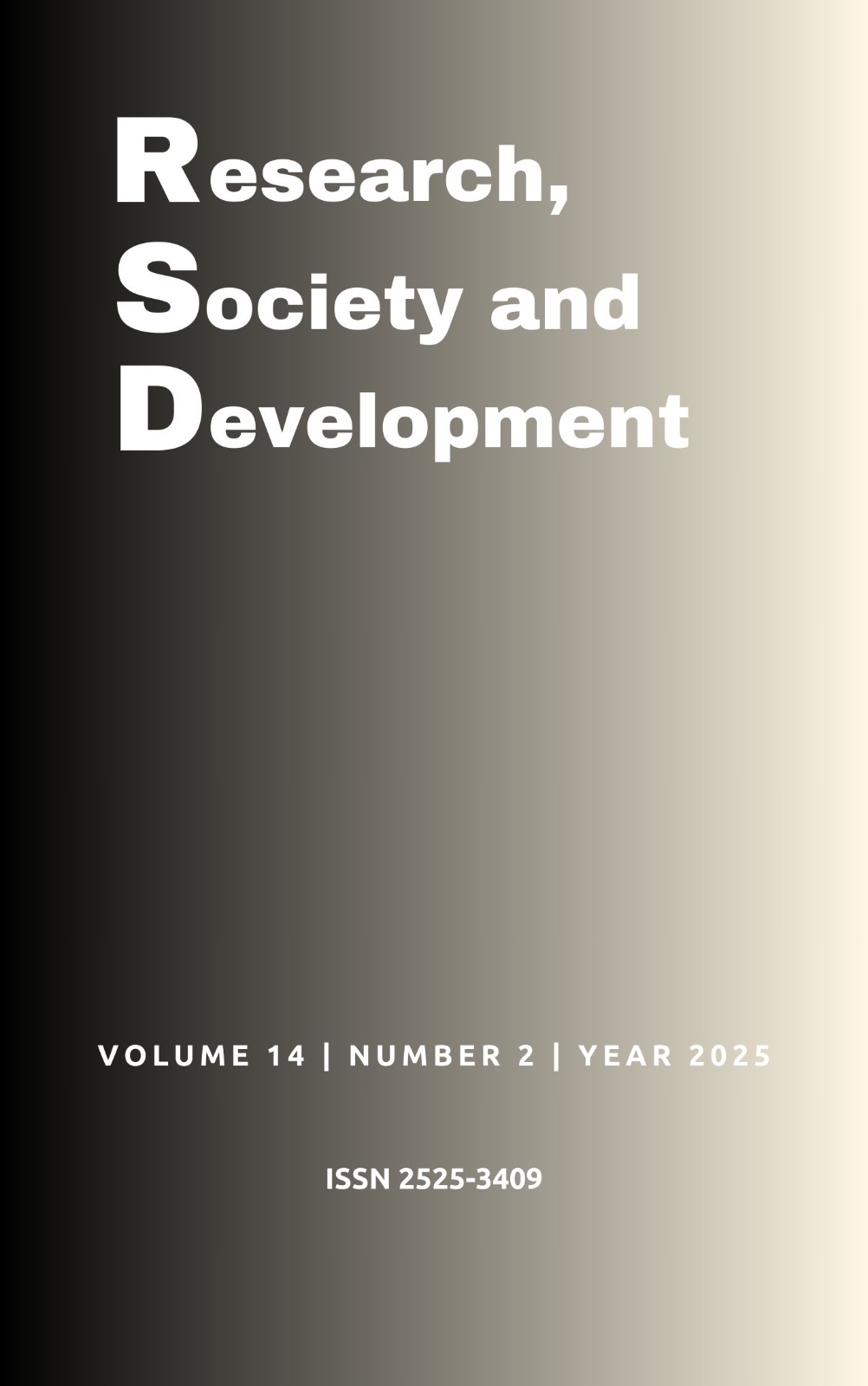Jehovah´S Witnesses and Blood Transfusion: Current ethical implications
DOI:
https://doi.org/10.33448/rsd-v14i2.48252Keywords:
Blood Transfusion, Jehova´s Witnesses, Emergency Health Service.Abstract
Introduction: Ethical and bioethical issues are addressed when discussing the refusal of Jehovah’s Witnesses (JWs) to accept blood transfusions. The debate involves fundamental principles such as autonomy and beneficence. The article aimed to evaluate the positive and negative aspects related to medical decision-making in transfusing blood to Jehovah's Witness patients in cases of imminent risk of death. Methods: Integrative review is based on scientific articles from the Lilacs, Pubmed, and Scielo databases all with free access. Academic books, legal regulations, and relevant court decisions were also analyzed. Results: According to the Code of Medical Ethics, physicians are prohibited from proceeding with treatment without obtaining informed consent from the patient or a legal representative, except in cases where there is an imminent risk of death. The physician must still perform alternative treatments that are authorized by the patient to avoid death, not directly resorting to non-consensual intervention. Discussion: The refusal to transfuse blood is rooted in the religious beliefs of the JWs, as they consider it a violation of divine commandments. The physician should respect the informed decision of the patient but should consider the implications of this choice on the individual’s life. Recently this issue was discussed by the Superior Federal Court (STF), which decided in favor of religious freedom. Conclusion: Faced with this dilemma, it is essential to expand the available therapeutic arsenal and strengthen the dialogue of doctors with Jehovah’s Witness patients, ensuring that their beliefs are respected without compromising the quality of care received.
References
Alternativas de qualidade para a transfusão. (2024). JW.ORG.
Alves, B. O. O. M. (2024.). 25/11 – Dia Nacional do Doador Voluntário de Sangue | Biblioteca Virtual em Saúde MS.
https://bvsms.saude.gov.br/25-11-dia-nacional-do-doador-voluntario-de-sangue-2/
Anima. (2014). Manual revisão bibliográfica sistemática integrativa: a pesquisa baseada em evidências. Grupo Anima.
Azambuja, L. E. O. de, & Garrafa, V. (2010). Testemunhas de Jeová ante o uso de hemocomponentes e hemoderivados. Revista da Associação Médica Brasileira, 56(6), 705–709.
Brasil. (1988). Constituição da República Federativa do Brasil de 1988. https://www.planalto.gov.br/ccivil_03/Constituicao/Constituicao.htm
Campos, N. da F., & Costa, L. B. (2022). Discussões sobre bioética, direito penal e pacientes Testemunhas de Jeová. Revista Bioética, 30(2), 337–345. https://www.scielo.br/j/bioet/a/J4xZd63GdxrHkcY4GwYyJxF/?format=pdf&lang=pt
Conselho Federal de Medicina. (2019). Código de Ética Médica – Resolução CFM nº 2.217, de 27 de setembro de 2018. https://portal.cfm.org.br/images/PDF/cem2019.pdf
Crossetti, M. G. O. (2012). Revisión integrativa de la investigación en enfermería, el rigor científico que se le exige. Revista Gaúcha De Enfermagem, 33(2),
–11. https://doi.org/10.1590/S1983-14472012000200002
Fernandes, A. C., & Souza, R. T. (2022). Técnicas alternativas à transfusão de sangue dos pacientes Testemunhas de Jeová. Revista Higeia, 8(16), 123-134. https://periodicos.unimesvirtual.com.br/index.php/higeia/article/download/1462/1234
França, I. S. X. de, Baptista, R. S., & Brito, V. R. de S. (2008). Ethical dilemmas in blood transfusion in Jehovah’s Witnesses: A legal-bioethical analysis. Acta Paulista de Enfermagem, 21(3), 498–503.
Gilmar, M., Órgão, R., Pleno, T., & Presencial, F. (2024). RE 1.212.272 – Testemunha de Jeová.
Gonçalves, C.S.E. (2012) Não Autorização para Transfusão de Sangue por Convicção Religiosa. In Araújo I. (Ed.), Curso de constitucional: normatividade jurídica (pp 37-45) Rio de Janeiro, RJ: EMERJ.
Holden, A. (2020). Jehovah’s Witnesses: Portrait of a contemporary religious movement. Internet Archive. https://archive.org/details/jehovahswitnesse0000hold/page/n9/mode/2up
Lima, G. S., & Araújo, M. F. (2013). Os enfermeiros diante do dilema ético: transfusão de sangue em Testemunhas de Jeová. Revista Uningá Review, 15(2), 45-50. https://www.mastereditora.com.br/periodico/20131010_130543.pdf
Luís, M., Órgão, R., Pleno, T., & Presencial, F. (2024). RE 979.742 – Testemunha de Jeová.
Marini, B. (2005). O caso das Testemunhas de Jeová e a transfusão de sangue. Jus Navigandi. http://jus2.uol.com.br/doutrina/texto.asp?id=6641
Mattos, P. C. (2015). Tipos de revisão de literatura. Unesp, 1-9. https://www.fca.unesp.br/Home/Biblioteca/tipos-de-evisao-de-literatura.pdf
Pereira, A.S., Shitsuka, D. M., Parreira F.J. & Shitsuka, R. (2018) Metodologia da Pesquisa Científica. Editora RS: UFSM, NTE.
Organização Mundial da Saúde. (2024). Transfusões de sangue e tratamentos alternativos. OMS.
https://www.who.int/bloodsafety/alternative-transfusion
Silva, L. C. (2018). Bioética e direitos fundamentais: A recusa às transfusões de sangue pelas Testemunhas de Jeová. Universidade Federal de Uberlândia. https://repositorio.ufu.br/bitstream/123456789/24406/1/BioeticaDireitosFundamentais.pdf
Sistema CFM.. Resolução CFM nº 1021/1980. https://sistemas.cfm.org.br/normas/visualizar/resolucoes/BR/1980/1021
Supremo Tribunal Federal (STF). (1940). Decreto-Lei nº 2.848, de 7 de dezembro de 1940 – Código Penal Brasileiro. https://www.planalto.gov.br/ccivil_03/decreto-lei/Del2848compilado.htm
Supremo Tribunal Federal (STF). (2024). Testemunhas de Jeová têm direito de recusar procedimento que envolva transfusão de sangue, decide STF. https://noticias.stf.jus.br/postsnoticias/testemunhas-de-jeova-tem-direito-de-recusar-procedimento-que-envolva-transfusao-de-sangue-decide-stf/
Vieira, M. A., & Castro, R. F. (2022). Perspectivas bioéticas e religiosas sobre a recusa de transfusão de sangue. Revista Humanidades e Inovação, 9(1), 320-335.
Downloads
Published
Issue
Section
License
Copyright (c) 2025 Melyssa Versiani Bastos; Ana Laura Souza do Altíssimo; Andiara Gomes de Lima; Carolina Abreu Neiva; Giovana Nahass Querubino Guimarães Fonseca; Luana Lagares Stahlberg ; Raquel Motta de Oliveira; Sofia Barbosa Leal; Maria Isabel de Oliveira e Britto Villalobos

This work is licensed under a Creative Commons Attribution 4.0 International License.
Authors who publish with this journal agree to the following terms:
1) Authors retain copyright and grant the journal right of first publication with the work simultaneously licensed under a Creative Commons Attribution License that allows others to share the work with an acknowledgement of the work's authorship and initial publication in this journal.
2) Authors are able to enter into separate, additional contractual arrangements for the non-exclusive distribution of the journal's published version of the work (e.g., post it to an institutional repository or publish it in a book), with an acknowledgement of its initial publication in this journal.
3) Authors are permitted and encouraged to post their work online (e.g., in institutional repositories or on their website) prior to and during the submission process, as it can lead to productive exchanges, as well as earlier and greater citation of published work.


